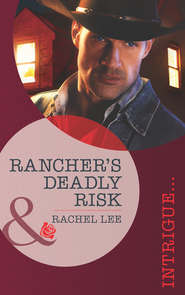По всем вопросам обращайтесь на: info@litportal.ru
(©) 2003-2025.
✖
What She Saw
Автор
Год написания книги
2019
Настройки чтения
Размер шрифта
Высота строк
Поля
Mr. Liston spoke. “He didn’t do no drugs. I know that much. And that Martin girl said the same thing.”
“What Martin girl?”
“Haley Martin. Works at the truck stop. She saw Ray just before…she said he was fine. Just fine. She don’t believe it was no drugs, either.”
“I’m sure it wasn’t,” Jim said firmly. “I’m positive. Ray wouldn’t do that.”
“No,” Mr. Liston agreed. “No. Not my boy.”
Mrs. Liston wiped away her tears. “I’m gonna go get in my nightclothes. Then I’ll make us all some Ovaltine.” It had always been her soothing solution to everything. No one disagreed with her. Her husband went with her to change clothes.
Jim sat where he was, then as soon as he heard them reach their bedroom, he stepped outside and pulled out his cell phone. The signal was almost nonexistent, but he got through. The call was brief; he said very little.
But he did mention Haley Martin.
The sheriff’s office was located in a storefront on a corner across the street from the courthouse square, a bit of eastern charm transplanted to the West. Inside, the dispatcher’s desk was surrounded by other desks apparently for use by deputies. Each desk boasted a relatively new computer, all of which looked out of place on desks that were at least thirty years old, maybe older. Wooden floors creaked with every step.
A young deputy sat at the dispatcher’s desk, sipping coffee and looking bored behind a console that would have done a big-city operation proud.
Micah pointed Buck to a chair next to one of the desks. “Wait there.” Then he crossed to the dispatcher.
“Get Gage in here. I need him. Then run these IDs.” He pulled out Buck’s IDs and tossed them on the dispatcher’s desk. “I want everything you can find, and then you’re going to forget all of this unless I say otherwise.”
Evidently, Buck thought with mild amusement, gossip could be a problem in this office, too.
“Who made the coffee?” Micah asked.
“I did,” answered the young deputy, whose name tag said he was Rankin. “It’s not lethal.”
Micah glanced at Buck. “Coffee?”
“Black, please.” Evidently they hadn’t gotten past being courteous, always a good sign.
Micah brought two mugs over to the desk, handing one to Buck. “Getting decent coffee around here is a trial. Our day dispatcher, Velma, turns it into battery acid. Nobody has the heart to tell her to stop making it.”
“I’m used to stuff you can stand a spoon in.”
“Then you might like Velma’s brew.”
Silence fell. A call had been put out, but then the radio grew quiet. The only sound was Rankin tapping busily away, looking into Buck’s background.
“Do you really need a night shift around here?” Buck asked eventually. Not that he was opposed to silence, but a little friendly conversation seemed in order. He wanted these guys to cooperate, if possible, but at the very least not to get into his way. Unless they turned out to be part of the problem.
“We have roadhouses,” Micah said, as if that explained it all. It probably did. “You must have broken up a few drunken brawls in your day.”
“Plenty.”
“Cowboys coming in off the range are pretty much like soldiers on a pass. These days, cowboys aren’t often on the range.”
“Times are bad everywhere.”
Micah nodded. “Not getting any better, either. Too many folks trying to drown their sorrows.”
The sheriff arrived in about fifteen minutes. A man who appeared to be somewhere in his late fifties, with a burn-scarred face and visible limp, entered the office wearing a light jacket, jeans and his badge clipped to his belt.
He paused, looked at Buck. “What’s up?”
“Well, that’s what I’m trying to find out,” Micah said. “Got a complaint from someone that this guy seemed to be bothering Haley Martin. According to him he wasn’t bothering her.”
“Have you talked to Haley?”
“Not until I figure out what’s going on here. Rankin’s pulling his background right now.”
“And you needed me for?”
“Well, I thought you and me together in a quiet office might get a little further. I get the feeling there’s something we need to know.”
There were a couple of ways to take that, but Buck decided to take it favorably until he had reason to think otherwise.
That was when Rankin looked up. “Holy cow,” he said.
“What?” the sheriff asked.
“This guy’s for real. I mean, really real.”
“Would you like to explain that?”
“You want the list of medals or the job description?”
The sheriff took a printout from Rankin and led the way to an office in the back. Buck followed with his coffee, waiting to see how this played out. Every muscle in his body was coiled and ready. He’d seen corruption in local law enforcement before, and trust wasn’t his strong suit.
For now, though, everything seemed on the up-and-up. The sheriff’s office was small. The nameplate on his desk, identifying him as Gage Dalton, Sheriff, looked as if it had taken more than one tumble to the floor. A computer filled one corner of the desk and a stack of papers the other.
Gage sat behind it, and Micah and Buck took up the two chairs facing it, while Gage scanned the printout. A moment later he handed Buck’s IDs back to him.
“Okay,” he said. “You’re former CID. Plenty of commendations. Plenty of blanks, too.”
Buck said nothing.
“Being former DEA myself, I know about those blanks. They don’t worry me much. So maybe you’d like to explain to Micah and me why someone would think you’re harassing Haley Martin and what you’re doing hanging around in my town.”
Buck hesitated a moment longer, glancing toward Micah.
“SF,” Micah said, referring to Special Forces. “Retired.”
“I wanted to scope things out a bit more before I came to you,” Buck said frankly. “I don’t know much about what’s going on right now, but something is, and I wanted to have some feel for who might be involved before I go shooting off my mouth.”
“It looks like the time for that is past,” Gage said bluntly. “You’re the stranger here, and you just got some unwanted attention. We can make your life easy or hard. Your choice.”











